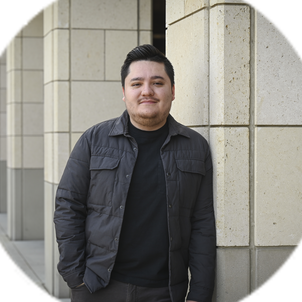It was my father, an orthopedic surgeon, who inadvertently introduced me to engineering.
Every night as a kid I’d ask him to tell me about the surgeries he’d done that day, and as he described his work – a broken bone repaired or a torn ligament reattached – I began to appreciate the idea of building things from the point of view of making them more functional. I also saw the satisfaction each of my parents got from their work, and I wanted to have that. I knew I didn’t want the responsibility of having someone’s life in my hands, but I thought I might be good at building things.
That belief was reinforced during my undergraduate years in India. At the time, there was a major problem with milk vendors adulterating their product with melamine, which was causing infant deformities, growth problems and death. The lab where I worked was trying to develop a cheap test that could be used by parents at home to determine if milk was safe to drink. I managed to build something that worked, and cost 10 cents. It won an award, and left me feeling the same kind of satisfaction that I’d witnessed in my parents for so long.
Now I’m interested in regenerative medicine. At the Chaudhuri Lab at Stanford, I take stem cells and put them in different hydrogel environments to see how they respond. The eventual goal of regenerative medicine is to understand how to make our cells grow our own tissues – ideally by taking a small tissue sample from a patient that could be used to grow out a particular organ, or part of an organ. The applications of this work are so broad that there is the potential to essentially revolutionize medicine. The idea of developing better therapies to help people with brain and heart-related disease, for example, really excites me. We’re still in the early stages, but this fundamental research could lead to those answers.
If you’d ask me to define an engineer, I’d simply say it’s someone who helps make our lives better. It could be by building trains, building electronics or building organs for human health, like our lab is trying to do. All that’s required is to be interested in what you’re doing, and to have a curious mind.
Related spotlights

Adrienne Propp

Lara Weed

